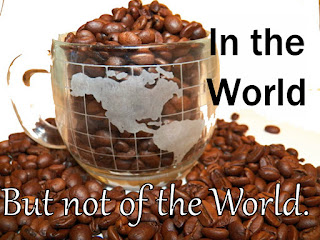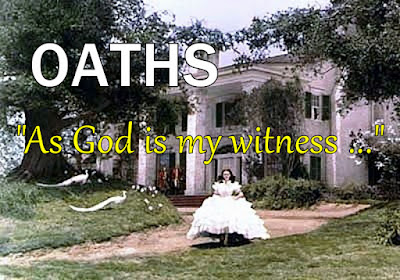LOVE IS KIND
John 2:1-12
I Corinthians 13:4
Love is kind.
In January of 2008, I found myself sitting in a sales barn in Denison, Iowa. Towards the end of the morning, a pony was brought out. People began leaning in and talking quietly to each other as they pointed to an older man with an eight or nine year old little girl at his side. The little girl was his granddaughter, and he had brought her so she could buy a pony. The auctioneer opened the bidding at $25. The only person who bid on the pony was the grandfather. Word had been passed around to those attending to not bid against him. Because of their kindness, a happy and proud child went home with a pony she had bought with her own money.
Kindness, as the people of Jesus' time understood it meant an act that was practical, specific to the recipient's needs and was done for the benefit of the other. We see examples of such kindness in Jesus' earthly ministry, including the wedding feast in Cana.
Perhaps the bride and groom simply hadn't planned on so many people showing up for dinner or that their guests would have such a good time that they would stay so long. As the supply of drink ran low, a servant came to Mary and whispered in her ear. Mary nodded and then turned to Jesus. "They're running out of wine."
This was to be Jesus' first miracle. Surely there were those in Cana who were sick, crippled and in great need. Yet, Jesus chose to begin his ministry with an act of kindness. He turned wine into water so this couple's special day wouldn't be spoiled by complaints about their lack of hospitality.
Christ's kindness is an expression of God's grace. He didn't have to do it, but he did it as a gift to the bride and groom, meeting their needs in a very practical way. Like grace, it has that 'beyond what is expected" quality. Each of the six jars Jesus told the servants to fill with water held eight and three-quarters gallons of liquid. From those jars came fifty-two and a half gallons of the finest wine the wedding host had ever tasted.
God's kindness provides the very best that God can offer. It's like greeting someone in the morning with a welcoming smile and a cup of the best coffee they have ever had. It's like buying top brands to donate to a food drive rather than the cheapest, generic brands we can find on the shelves.
There is also a quality of mercy to kindness that flows out of the self-sharing, self-giving loving nature of God. When Jesus stops in the middle of main street in Jericho to announce to Zaccheus and all present that he is going to Zaccheus' home to dine with him, he gave the little tax collector worth and dignity. When he stopped and gave his full attention to the woman who was healed of the hemorrhage and listened to her story, he gave her compassion and assurance.
How have we experienced the kindness of Christ? Has Christ helped us work through a problem or came to our rescue when we had made a mess of things? When has Jesus made us feel loved and wanted and that our life had worth and purpose? How many times has Jesus listened to us and assured us that everything is all right, everything will work out?
If God has been so kind to us, can't we be kind to others?
Our acts of kindness hare small miracles of compassion, mercy and helpfulness. Kindness is allowing another driver to pull into traffic in front of us. Kindness is stepping aside so that tired mother with young children in tow can go through the check-out line in front of us. Kindness is doing a household chore without being asked or fixing a meal for someone who's ill. Kindness is doing good for the sake of those we don't like, for those we don't believe deserve our kindness, for those whom we may name as our enemies.
In Max Lucado's book, A Love Worth Giving, he shares this story. At a charity auction benefiting a local school, someone had donated a purebred puppy that melted the hearts and opened the checkbooks of the people there. One by one, people dropped out of the bidding until two remained -- a man and woman sitting on opposite sides of the banquet hall. They turned it into a bidding war with each determined that the other was not going to get the puppy. The bids reached into the thousands of dollars, and finally, the man gave up.
When she was presented with the puppy, the expression on the woman's face changed. She wrote the check and then took the dog over to her competitor and gave it to him. Perhaps she felt ashamed that she had allowed her competitive nature get the best of her, in public, where people saw a side of her she wasn't very proud of. Personally, I think she experienced a touch of God's grace that helped her turn a moment of self-centered victory into an act of kindness. Through grace, kindness transforms both the giver and the receiver.
Sometimes, we are our own worst enemies. We beat ourselves up over things we have done, even after we've taken them to Jesus and asked for forgiveness. The Good News is that Jesus' life, death and resurrection declares that God believes we are worth dying for. The greatest kindness we can show ourselves is to reject the self-sabotaging and self-defeating messages we allow to play in our heads and accept the truth of God's grace -- God's forgiveness, healing and kindness. When we experience God's kindness for ourselves, we can share that same kindness with others.
And when we run low on kindness, we can go to God and ask for a fresh supply of it, or anything, for that matter we need to love others as Christ has loved us. God has an endless supply of grace. The more kindness we share, the more we will get and the more we can give.
Love is kind.
I Corinthians 13:4
Love is kind.
In January of 2008, I found myself sitting in a sales barn in Denison, Iowa. Towards the end of the morning, a pony was brought out. People began leaning in and talking quietly to each other as they pointed to an older man with an eight or nine year old little girl at his side. The little girl was his granddaughter, and he had brought her so she could buy a pony. The auctioneer opened the bidding at $25. The only person who bid on the pony was the grandfather. Word had been passed around to those attending to not bid against him. Because of their kindness, a happy and proud child went home with a pony she had bought with her own money.
Kindness, as the people of Jesus' time understood it meant an act that was practical, specific to the recipient's needs and was done for the benefit of the other. We see examples of such kindness in Jesus' earthly ministry, including the wedding feast in Cana.
Perhaps the bride and groom simply hadn't planned on so many people showing up for dinner or that their guests would have such a good time that they would stay so long. As the supply of drink ran low, a servant came to Mary and whispered in her ear. Mary nodded and then turned to Jesus. "They're running out of wine."
This was to be Jesus' first miracle. Surely there were those in Cana who were sick, crippled and in great need. Yet, Jesus chose to begin his ministry with an act of kindness. He turned wine into water so this couple's special day wouldn't be spoiled by complaints about their lack of hospitality.
Christ's kindness is an expression of God's grace. He didn't have to do it, but he did it as a gift to the bride and groom, meeting their needs in a very practical way. Like grace, it has that 'beyond what is expected" quality. Each of the six jars Jesus told the servants to fill with water held eight and three-quarters gallons of liquid. From those jars came fifty-two and a half gallons of the finest wine the wedding host had ever tasted.
God's kindness provides the very best that God can offer. It's like greeting someone in the morning with a welcoming smile and a cup of the best coffee they have ever had. It's like buying top brands to donate to a food drive rather than the cheapest, generic brands we can find on the shelves.
There is also a quality of mercy to kindness that flows out of the self-sharing, self-giving loving nature of God. When Jesus stops in the middle of main street in Jericho to announce to Zaccheus and all present that he is going to Zaccheus' home to dine with him, he gave the little tax collector worth and dignity. When he stopped and gave his full attention to the woman who was healed of the hemorrhage and listened to her story, he gave her compassion and assurance.
How have we experienced the kindness of Christ? Has Christ helped us work through a problem or came to our rescue when we had made a mess of things? When has Jesus made us feel loved and wanted and that our life had worth and purpose? How many times has Jesus listened to us and assured us that everything is all right, everything will work out?
If God has been so kind to us, can't we be kind to others?
Our acts of kindness hare small miracles of compassion, mercy and helpfulness. Kindness is allowing another driver to pull into traffic in front of us. Kindness is stepping aside so that tired mother with young children in tow can go through the check-out line in front of us. Kindness is doing a household chore without being asked or fixing a meal for someone who's ill. Kindness is doing good for the sake of those we don't like, for those we don't believe deserve our kindness, for those whom we may name as our enemies.
In Max Lucado's book, A Love Worth Giving, he shares this story. At a charity auction benefiting a local school, someone had donated a purebred puppy that melted the hearts and opened the checkbooks of the people there. One by one, people dropped out of the bidding until two remained -- a man and woman sitting on opposite sides of the banquet hall. They turned it into a bidding war with each determined that the other was not going to get the puppy. The bids reached into the thousands of dollars, and finally, the man gave up.
When she was presented with the puppy, the expression on the woman's face changed. She wrote the check and then took the dog over to her competitor and gave it to him. Perhaps she felt ashamed that she had allowed her competitive nature get the best of her, in public, where people saw a side of her she wasn't very proud of. Personally, I think she experienced a touch of God's grace that helped her turn a moment of self-centered victory into an act of kindness. Through grace, kindness transforms both the giver and the receiver.
Sometimes, we are our own worst enemies. We beat ourselves up over things we have done, even after we've taken them to Jesus and asked for forgiveness. The Good News is that Jesus' life, death and resurrection declares that God believes we are worth dying for. The greatest kindness we can show ourselves is to reject the self-sabotaging and self-defeating messages we allow to play in our heads and accept the truth of God's grace -- God's forgiveness, healing and kindness. When we experience God's kindness for ourselves, we can share that same kindness with others.
And when we run low on kindness, we can go to God and ask for a fresh supply of it, or anything, for that matter we need to love others as Christ has loved us. God has an endless supply of grace. The more kindness we share, the more we will get and the more we can give.
Love is kind.



Comments
Post a Comment